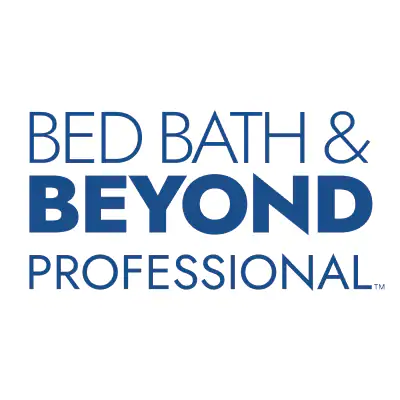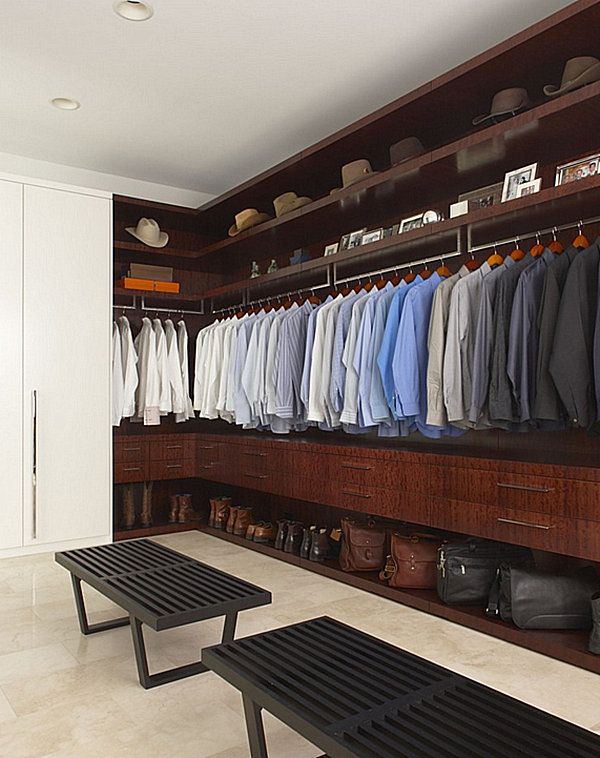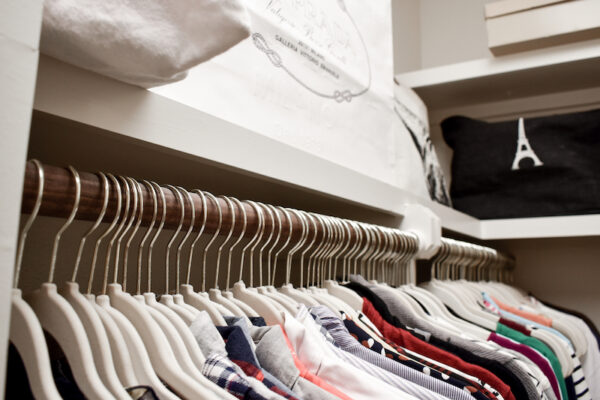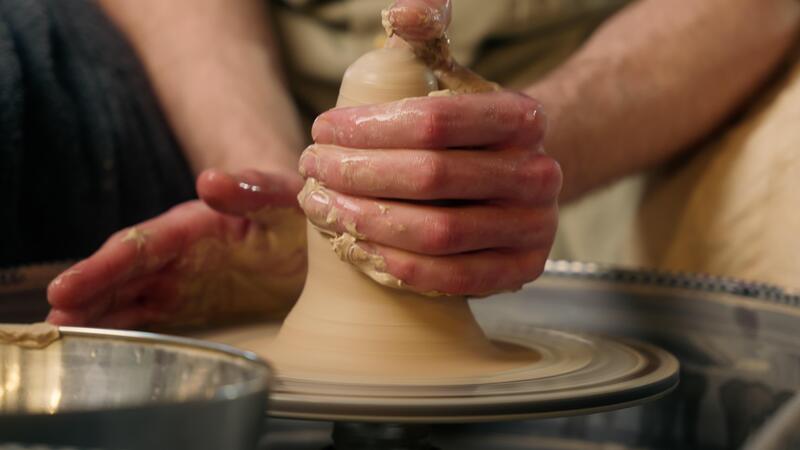
Beyond Tidying Up: How Strategic Home Organization Boosts Mental Health, Productivity, and Well-being
In our fast-paced world, the home is more than just a living space; it’s a sanctuary, an office, a gym, and a classroom. Yet for many, this sanctuary feels more like a source of stress. Piles of mail, overflowing closets, and cluttered countertops can create a constant, low-grade hum of anxiety. Home organization is often viewed as a daunting, aesthetic-driven chore, but its impact runs much deeper. It is a foundational practice in self-care and a powerful tool for enhancing overall quality of life. True organization isn’t about achieving a sterile, magazine-perfect look; it’s about creating a functional, peaceful environment that supports your mental health, boosts your productivity, and nurtures your relationships.
This comprehensive guide will explore the profound connection between our physical environment and our internal state. We will move beyond simple cleaning tips to uncover the psychology behind clutter, provide a systematic framework for reclaiming your space, and offer actionable strategies for building lasting organizational habits. By embracing strategic home organization, you can transform your home from a place of chaos into a platform for a healthier, more intentional, and fulfilling life for everyone under your roof.
The “Why”: Connecting Physical Space to Mental Well-being
Before diving into the “how” of organizing, it’s crucial to understand the “why.” The state of our home is often a direct reflection of our mental state, and conversely, our environment has a profound ability to influence our mood, stress levels, and cognitive function. This symbiotic relationship is the cornerstone of why home organization is a critical component of modern health and wellness.
The Science of Clutter and Stress
Scientific research validates the feeling of anxiety that clutter can induce. A study from UCLA’s Center on Everyday Lives of Families (CELF) found a direct link between a high density of household objects and elevated levels of the stress hormone cortisol, particularly in women. Visual clutter bombards our minds with excessive stimuli, forcing our brains to work overtime to process irrelevant information. This leads to mental fatigue, difficulty concentrating, and a diminished capacity for creative thinking and problem-solving. This constant state of low-grade stress can impact everything from our sleep health to our daily interactions, contributing to irritability and straining family life. By decluttering, we are literally clearing a path for our minds to relax and focus, directly contributing to better stress management and overall mental health.
From Scarcity to Abundance: A Mindset Shift
The things we own often carry significant emotional weight. We may hold onto items out of guilt (“It was a gift”), fear (“I might need this someday”), or nostalgia. This attachment can stem from a scarcity mindset—a fear of not having enough. The practice of decluttering is therefore an exercise in personal development and mindfulness. It forces us to confront these attachments and make intentional choices about what truly adds value to our lives. Embracing principles from minimalism isn’t about deprivation; it’s about making room for abundance. By letting go of the excess, we create physical and mental space for hobbies, relationships, and experiences that genuinely enrich us. This shift towards intentionality is a powerful act of self-improvement that ripples through every aspect of life.
The Impact on Daily Habits and Productivity
An organized environment is a catalyst for positive habits. When your workout clothes are easy to find, you’re more likely to follow through on your fitness tips. When your kitchen is orderly, meal planning and preparing healthy recipes become less of a chore and more of a joy. This is especially critical in the age of remote work, where the line between home and office is blurred. A dedicated, clutter-free workspace dramatically enhances focus and efficiency, improving your work-life balance. Furthermore, a calm and predictable environment is essential for pet care. Animals thrive on routine and a stable setting; a chaotic home can be a source of stress for them, too. A well-organized home ensures their supplies are accessible and their space is safe and secure.

The “How”: A Systematic Approach to Reclaiming Your Space
Understanding the benefits of organization is motivating, but facing the clutter can be paralyzing. The key is to replace overwhelm with a clear, systematic plan. By breaking the process down into manageable steps, anyone can transform their space. The most effective method follows four foundational principles: Sort, Purge, Assign, and Contain.
The Foundational Principles: Sort, Purge, Assign, Contain
This four-step process provides a universal framework for tackling any cluttered area, from a single drawer to an entire garage.
- Sort: Begin by taking everything out of the space you’re organizing and grouping like items together. All batteries in one pile, all pens in another, all sweaters in a third. This step is purely mechanical and helps you see the true volume of what you own.
- Purge: This is the decision-making phase. For each group, critically evaluate every item. Ask practical questions: Is it broken? Have I used it in the last year? Do I have duplicates? Also consider the emotional aspect: Does this item support the life I want to live? This is where decluttering becomes a truly transformative act.
- Assign: Once you’ve decided what to keep, every single item needs a designated “home.” This is the most crucial step for long-term success. Your keys should have a hook, your mail a specific tray, and your gardening tools a dedicated shelf. When everything has a logical place, tidying up becomes a simple matter of returning things to their homes.
- Contain: Finally, use appropriate storage solutions to keep your assigned homes neat. This doesn’t mean rushing out to buy expensive bins. Start by using what you have. The goal of containers is to create boundaries and make items easy to access, not to hide clutter.
Case Study: The Kitchen and Pantry Overhaul
Let’s apply this to a real-world scenario: the chaotic kitchen pantry.
Before: A jumble of half-empty boxes, expired cans, and duplicate spices. Finding ingredients is a stressful scavenger hunt, leading to food waste and impulse buys. This disorganization directly impacts personal finance and nutrition news you hope to follow.
The Process:
- Sort: Empty the entire pantry. Create zones on your floor or counter for categories: baking goods, pasta/grains, canned goods, snacks, spices.
- Purge: Check every expiration date. Discard expired items (composting where possible to align with eco-friendly living). Identify duplicates and items your family no longer eats to donate.
- Assign: Designate specific shelves for each category. Heavy items like canned goods on lower shelves, frequently used items at eye level. This is a form of interior design for your cabinets.
- Contain: Transfer grains, pasta, and snacks into clear, airtight containers. This keeps food fresh, allows you to see inventory at a glance, and prevents pest issues. Use turntables for spices and oils, and simple bins to corral smaller items. Add labels for clarity.
After: The pantry is now a functional hub that supports your health & wellness goals. You can see what you have, which simplifies meal planning, reduces food waste, and makes grocery shopping more efficient, aligning with smart budget tips.
Making It Last: Integrating Organization into Your Daily Lifestyle
A massive decluttering project can feel incredible, but the real challenge is maintaining that order. Lasting success comes not from a single marathon session, but from embedding small, consistent organizational habits into your daily routine. This transforms organization from a project into a lifestyle.
The “One-In, One-Out” Rule and Other Micro-Habits
Preventing clutter from re-accumulating is easier than dealing with it once it’s taken over. Adopt simple rules to maintain equilibrium in your home.
- The One-In, One-Out Rule: This is especially effective for categories like clothing, books, and mugs. When you bring a new item home, an old one must leave. This forces conscious consumption and is a cornerstone of sustainable fashion and minimalism.
- The 5-Minute Tidy: At the end of the day, set a timer for five minutes and do a quick reset of a high-traffic area like the living room or kitchen counter. Put things back in their assigned homes. This small habit prevents daily mess from becoming overwhelming clutter.
- Handle It Once: When you bring mail into the house, sort it immediately over the recycling bin. File important papers, and deal with bills right away. This prevents the dreaded paper pile-up.
These micro-habits are a form of applied mindfulness, keeping you connected and intentional about your space.

The Role of Family and Community Living
In a shared home, organization must be a team effort. Getting buy-in from family members or roommates is essential for sustainability. Hold a family meeting to discuss the benefits of an organized home and create shared goals. Assign ownership of different zones or chores based on age and ability, which can be valuable parenting tips for teaching responsibility. Labeling is key here; when everyone knows where things belong, there are no excuses. Frame it as a way to create more time and energy for fun family activities. For items you purge, engage with your community. Donating to local shelters or participating in “Buy Nothing” groups fosters a sense of community living and social impact, turning your decluttering into a positive act of volunteering.
Leveling Up: Technology and Design in Modern Organization
Once you’ve mastered the fundamentals, you can explore more advanced strategies and tools that integrate organization seamlessly into a modern lifestyle. Technology and thoughtful design can elevate your system from functional to effortless.
Smart Home Integration for a Seamless Life
Technology for home offers innovative solutions to classic organizational challenges. A smart home can help automate and track your inventory. Use smart labels with QR codes to digitally catalog the contents of storage bins, so you never have to guess what’s inside. Pantry and fridge apps can help you track expiration dates and automatically generate shopping lists, further reducing food waste. Voice assistants can be used to set reminders for decluttering sessions or to add items to a “to-donate” list, enhancing your productivity tips for home management.
The Intersection of Interior Design and Organization

Great interior design is inherently organized. When choosing furniture and decor, prioritize function as well as form. Opt for multi-functional pieces like an ottoman with hidden storage, a bed frame with built-in drawers, or a coffee table that lifts to become a desk. Investing in well-designed closet systems or built-in shelving as part of a home improvement project can be transformative. Good design ensures that your organizational systems are not only effective but also blend beautifully into your home decor, creating a space that is both serene and stylish.
Specialized Organization: From Hobbies to Urban Gardening
The principles of organization can be applied to any area of your life. For hobbies like crafting, use pegboards and modular drawer units to keep supplies visible and accessible. For those embracing urban gardening, a vertical wall planter or a well-organized potting bench can maximize a small space and make plant care a joy. A well-organized system for your passion projects makes it easier to engage with them, bringing more fulfillment to your life.
Conclusion: Your Home as a Foundation for Well-being
Home organization is far more than a trend or a weekend project; it is a continuous practice of self-care and intentional living. By systematically decluttering your physical space, you are simultaneously clearing your mind, reducing stress, and building a foundation for healthier habits. The process creates a supportive environment that enhances productivity, strengthens relationships, and promotes overall well-being for every member of your household.
The journey from clutter to clarity begins with a single step. Start small, be consistent, and focus on progress, not perfection. By reclaiming control over your environment, you are not just tidying your home—you are consciously designing a life with more peace, purpose, and space for what truly matters.
Archives
- February 2026
- January 2026
- December 2025
- November 2025
- October 2025
- September 2025
- August 2025
- July 2025
- June 2025
- May 2025
- April 2025
- March 2025
- February 2025
- January 2024
- October 2023
- September 2023
- August 2023
- July 2023
- June 2023
- May 2023
- April 2023
- March 2023
- February 2023
- January 2023
- December 2022
- November 2022
- October 2022
- September 2022
- August 2022
- June 2022
- May 2022
- April 2022
- March 2022
- January 2022
- December 2021
- November 2021
- October 2021
- August 2021
- November 2020
- July 2020
- May 2020
- April 2020
- March 2020
- August 2018
- July 2018
- June 2018
- April 2018
- March 2018
Categories
- Aftercare Procedures
- Age Groups
- AI/ML
- Alternative Medicine
- Ambient Computing
- Animal Health
- Animal Husbandry
- Animals
- Anti-Aging
- Architectural Design
- Art And Technology
- Auditory Science
- Augmented Reality
- Automation
- Babies
- Baby
- Beauty & Skincare
- Beauty Industry
- Biohacking
- Biomechanics
- Book Reviews
- Breastfeeding
- Budgeting
- Budgeting Strategies
- Business
- Cardiovascular Health
- Career Advice
- Career Development
- Career Growth
- Cats
- Chess
- Chronobeauty
- Circular Economy
- Civic Technology
- Cleaning Tips
- Cloud Computing
- Cognitive Health
- Cognitive Performance
- Cognitive Science
- Community
- Community Building
- Community Engagement
- Community Living
- Computer Vision
- Consumer Guides
- Consumer Trends
- Container Gardening
- Content Analysis
- Content Non-Technical
- Content Strategy
- Cooking Techniques
- Cosmetic Chemistry
- Cultural Events
- Cycling
- Data Analysis
- Data Engineering
- Data Governance
- Data Science
- Database
- Design Psychology
- Design Trends
- Developer Productivity
- Diet
- Diet
- Diet And Nutrition
- Digital Identity
- Digital Media
- Digital Wellbeing
- DIY
- DIY Projects
- Dogs
- Engineering Culture
- Entertainment News
- Environmental Impact
- Environmental Science
- Equity Compensation
- Ethical AI
- Exercise
- Exercise Science
- Exercise Technique
- Exotic Pets
- Fall Gardening
- Family
- Family Health
- Family Life
- Fashion Business
- Fashion Industry
- Fashion News
- Fashion Tech
- Financial Analysis
- Financial Optimization
- Financial Planning
- Flooring Maintenance
- Food
- Food Psychology
- Food Safety
- Food Science
- Food Tech
- Functional Fitness
- Functional Training
- Future Of Work
- Garden Care
- Garden Maintenance
- Gardening Tips
- Geospatial Data
- Gig Economy
- Greece
- Greek
- Greek Food
- Green Technology
- Gymnastics
- Hardware Engineering
- Health
- Health And Wellness
- Health Informatics
- Health Science
- Health Tech
- Health Technology
- Healthcare
- Healthcare Management
- Healthy Eating
- Healthy Recipes
- Holistic Health
- Holistic Wellness
- Home & Living
- Home Decor
- Home Financing
- Home Health
- Home Improvement
- Home Maintenance
- Home Organization
- Home Styling
- Horticulture
- Household Chemistry
- Identity Management
- Indoor Gardening
- Industrial Design
- Industry Analysis
- Infant Nutrition
- Infrastructure Management
- Ingredient Deep Dive
- Integrative Health
- Integrative Medicine
- Interior Design
- Internet of Things
- Internet of Things (IoT)
- Invalid Request
- Investment Strategies
- Investment Strategy
- IoT
- Kids
- Leadership Development
- Learning Strategies
- Lifestyle
- Lifestyle Brands
- Lifestyle News
- Lifestyle Optimization
- Literary Criticism
- Literature
- Logistics Management
- Machine Learning
- Material Science
- Materials Science
- Meal Planning
- Media Analysis
- Meditation
- Mental Health
- Mental Performance
- Mental Wellness
- Miami
- Miami Food
- Mind And Body
- Minimalism
- Mobile Development
- Neuroscience
- No Applicable Categories
- Nursing
- Nutrition
- Nutrition News
- Open Source
- Operating Systems
- Operational Resilience
- Opinion
- Organization Tips
- Outdoor Living
- Over 40
- Over 50
- Over 60
- Parenting
- Parenting
- Parenting Strategies
- Performance
- Performance Optimization
- Personal Development
- Personal Finance
- Personal Growth
- Personal Productivity
- Pet Care
- Pet Safety
- Philosophy
- Plant Care
- Politics
- Product Formulation
- Productivity
- Productivity Engineering
- Protein
- Psychology
- Psychology of Space
- Quantified Self
- Reading Culture
- Real Estate Investment
- Recipes
- Regulatory Compliance
- Remote Work
- Renovation Planning
- Resource Management
- Respiratory Health
- Responsible Pet Ownership
- Retail Strategy
- Retail Technology
- Robotics
- Science
- Seafood
- Seasonal Gardening
- Security
- Sedentary Health
- Self-Care
- Skincare Science
- Skincare Trends
- Sleep
- Sleep Health
- Smart Home
- Smoothies
- Social Impact
- Soft Skills
- Soil Health
- Spatial Computing
- Spatial Design
- Stress Management
- Supplements
- Sustainability
- Sustainability Science
- Sustainable Engineering
- Sustainable Fashion
- Systems Engineering
- Tax Optimization
- Tax Strategy
- Tech Investment
- Technical Writing
- Testing
- Travel
- Travel News
- Travel Safety
- Travel Tips
- Trend Analysis
- Tropical Plants
- Uncategorized
- Urban Gardening
- Urban Planning
- User Experience
- Veggie
- Vietnam
- Virtual Events
- Volunteering
- Wealth Management
- Wearable Technology
- Web Development
- Wellness
- Wellness Technology
- Winter Gardening
- Work-Life Balance
- Workplace Culture
- Workspace Setup
- World
- Writing
- Writing Skills
- Year In Review
- Yoga
- Yoga News
- Zero Waste




Leave a Reply